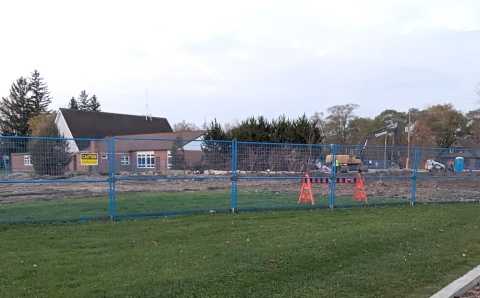It was Darrell Johnson, preaching professor at the seminary of Regent College, who modeled it. He would preach a sermon in class, then ask us students what we thought about it. At the beginning of the semester, we were all hesitant to speak up. After all, Johnson was quite well known for his preaching, in and out of the seminary. Who were we to critique his messages? But by the end of the semester everyone was chiming in about what they liked or did not like, what comment had the biggest impact, or how they thought he should have ended the sermon. It was invigorating! I looked forward to his class each week.
Have you ever experienced a lively discussion among students and teacher?
Early in my pastorate, I decided to incorporate this kind of dialogue into our worship services. So one Sunday, after the message, I invited questions and comments. Crickets. I waited, then waited some more. Still crickets! Dismayed, I wrote Johnson an email outlining my failure. His response: “Did you prime the pump? You should ask one or two parishioners before the service to think about the question you want to ask. Then they will be ready.” His suggestion worked! I primed the pump a couple of times, especially after a sermon series, and the conversation got rolling. After five years this dialogue became an expected part of our services. I recall many visitors telling me how remarkable it was that so many people would speak up and share. I would smile and tell them how proud I was of the congregation.
What do you think about offering this time for questions and answers after a message is preached?
I am now at my third post as a pastor. After the cloud of COVID lifted, we started gathering around tables. I invite people to have “table talks” during the message. I pose a question about the text and ask them what they think: “Why was this story included in the gospel of John?” “If this happened to you, how would you respond?” People share their ideas at their tables, and often I ask them to share with the larger group. We would pause to discuss the message up to three times within the sermon. It’s dialogical!
Who do you think would benefit most from this style of interaction?
The beauty of this approach to preaching is that the people learn from each other. They glean insights into texts they never thought of before—all because someone shared it at their table. They are learning about the Bible, but also about their fellow parishioners. Fellowship is growing, and so is spontaneous discipleship.
A couple of Sundays ago, I shared with the congregation how I read my Bible. Using the lectio divina method of reading a passage three times, I invited the people to enter the text the same way that they would enter a friend’s living room. Pay attention to the details, I said. What is on the walls? What kind of furniture is there? What is the main feature of the space? Who is in the room, and where are they seated? Take note of the text’s details, I told them, and we would talk about what they noticed a bit later. The amount of detail and insights gleaned from the text amazed me. The number and variety of people who shared insights or asked questions, from the teenager in the back corner to the septuagenarian at the front table, demonstrated a high level of engagement.
Dialogical preaching, I have discovered, not only invites people into the text, but makes room for each of us to wrestle openly about what God is saying to us as a community.
Discussion Questions
- What do you think about the idea of having a discussion time after the sermon?
- What was the best Bible discussion conversation you have experienced? What did you think made it so good or memorable for you?
- As the author asked, who do you think would benefit most from this style of interaction?
- Try using the lectio divina method on a Bible passage. How was the experience? What insights did you gain?
About the Author
Rev. Dale Melenberg is pastor of Maranatha Christian Reformed Church in Calgary, Alberta.








